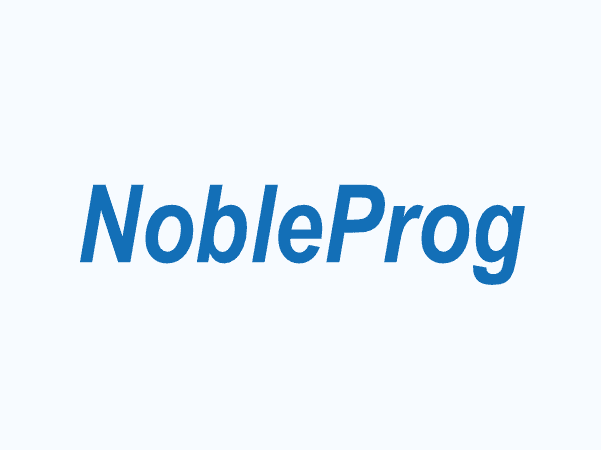2ТЦ╝, ж╗ёТхдтї║ж╗ёжЎѓтїЌУи»227тЈи, СИіТхи, СИГтЏй, 200003
СИіТхи - СИіТхиСИГтї║т╣┐тю║
СИіТхиСИГтї║т╣┐тю║СйЇС║јС║║Т░Љт╣┐тю║УЦ┐СЙДуџёж╗ёжЎѓтїЌУи»№╝їУбФС╝ЌтцџСИіТхиУЉЌтљЇтю░ТаЄТђДт╗║уГЉТЅђуј»у╗Ћ№╝їтЃЈтИѓТћ┐т║ютцДТЦ╝сђЂСИіТхиС╝џт▒ЋСИГт┐ЃсђЂСИіТхитЇџуЅЕждєуГЅжЃйтюежЎёУ┐Љ№╝їтЇЂтѕєТќ╣СЙ┐сђѓТѕЉС╗гуџётіътЁгуЕ║жЌ┤т░▒тюетцДТЦ╝уџёугг2т▒ѓсђѓСИіТхиСИГтї║т╣┐тю║тЉеУЙ╣ТюЅтЙѕтцџС║ћТўЪу║ДжЁњт║Ќ№╝їСЙІтдѓ№╝џУЅЙуЙјжЁњт║ЌсђЂжЏиУ┐фТБ«жЁњт║ЌсђЂJWСИЄУ▒фжЁњт║ЌуГЅ№╝їУ┐ўТюЅтЙѕтцџСЙ┐Т░ЉУ«ЙТќй№╝їСЙІтдѓ№╝џтљёт╝ЈуЙјжБЪжцљтјЁсђЂтцДтъІУ┤ГуЅЕСИГт┐ЃсђЂжЄЉУъЇТюЇтіАТю║ТъёуГЅсђѓ
СИіТхиСИГтї║т╣┐тю║ТГЦУАїтЄатѕєжњЪтЇ│тЈ»тѕ░УЙЙСИіТхиТюђтцДС╣ЪТў»Тюђу╣Ђт┐ЎуџёС║цжђџТъбу║йРђћРђћтю░жЊЂС║║Т░Љт╣┐тю║уФЎ№╝їт«ЃТў»тю░жЊЂ1сђЂ2тњї8тЈиу║┐уџёС║цтЈЅТЇбС╣ўуФЎсђѓУђїТГцтю░уџёС║║Т░Љт╣┐тю║Тў»СИіТхиТюђУЉЌтљЇуџёУАїТћ┐сђЂтЋєСИџтњїТќЄтїќСИГт┐Ѓ№╝їт╣│ТЌХС╣ЪжЃйТў»УйдТ░┤жЕгжЙЎ№╝їтЋєСИџТ░ћТЂ»ТхЊжЃЂсђѓС╗јСИіТхиСИГтї║т╣┐тю║т╝ђУйдтѕ░СИіТхиуЂФУйдуФЎС╗Ёжюђ15тѕєжњЪ№╝їтдѓТъютѕ░УЎ╣ТАЦтЏйжЎЁТю║тю║ТѕќжФўжЊЂуЂФУйдуФЎС╣ЪтЈфжюђ25тѕєжњЪУйдуеІсђѓ
жЏиТа╝Тќ»СИіТхиСИГтї║т╣┐тю║тіътЁгуЕ║жЌ┤СИ║СИіТхиТюгтю░тњїтЁХт«ЃтЏйтєЁтцќтЁгтЈИТЈљСЙЏС║єСИђСИфТюђт«їуЙјуџётіътЁгУДБтє│Тќ╣ТАѕ№╝їт╣ХС╗ЦТюђтљѕуљєуџёС╗иТа╝СИ║тЁгтЈИТЈљСЙЏТюђтЉетѕ░уџёу╗╝тљѕТюЇтіАсђЂТюђжйљтЁеуџётіътЁгУ«ЙтцЄсђЂТюђуЂхТ┤╗уџётіътЁгуЕ║жЌ┤сђѓ
СИіТхи - тЁГтЁФтЁФт╣┐тю║
16т▒ѓ, жЮЎт«Ѕтї║тЇЌС║гУЦ┐Уи» 688 тЈиТЂњтЪ║ 688 т«ц 16 т▒ѓ, СИіТхи, СИГтЏй, 200041
тЁГтЁФтЁФт╣┐тю║СйЇС║јтЏйжЎЁућ▓у║ДтєЎтГЌТЦ╝уџёуггтЇЂтЁГт▒ѓ№╝їТў»СИђт║Дуј░С╗БтїќтЈЉт▒ЋуџёСИГт┐Ѓ№╝їтюеу╣ЂтЇјуџётЇЌС║гУЦ┐Уи»№╝їу╣ЂтЇјуџёСИГт┐ЃтЋєтіАтї║сђѓтЇЌС║гУЦ┐Уи»Тў»СИіТхиТюђУЉЌтљЇуџётЋєСИџтї║№╝їТюЅжФўТАБуџётЋєтю║№╝їтіътЁгтцДТЦ╝тњїСИіТхит▒ЋУДѕСИГт┐Ѓсђѓ688т╣┐тю║Тў»СИђСИфжЮаУ┐ЉС║║Т░Љт╣┐тю║уџёТаЄт┐ЌТђДт╗║уГЉ№╝їСИ║тЏйжЎЁтЁгтЈИТЈљСЙЏСИђТхЂуџётиЦСйюуј»тбЃсђЂт▒ЁСйЈуј»тбЃтњїуЙјжБЪсђѓтюетЁХжЎёУ┐ЉТюЅС║ћТўЪу║ДуџёжЁњт║ЌтдѓСИЄУ▒фжЁњт║ЌсђЂТюђСй│УЦ┐Тќ╣тЏЏтГБжЁњт║ЌсђЂтЁгтЏГжЁњт║ЌуГЅсђѓ
тЈ»ТГЦУАїуЏ┤УЙЙтю░жЊЂ2тЈиу║┐сђѓтЈфжюђ25тѕєжњЪуџёУйдуеІ№╝їтЇ│тЈ»тѕ░УЙЙУЎ╣ТАЦтЏйжЎЁТю║тю║тњїжФўжђЪжЊЂУи»уФЎ№╝ї60тѕєжњЪтѕ░ТхдСИютЏйжЎЁТю║тю║сђѓ
тГљуЏ«тйЋ (9)
Тјбу┤бТѕЉС╗гуџёУ»ЙуеІ
Ethical Deployment of LLMs
7 т░ЈТЌХCross-Lingual LLMs
14 т░ЈТЌХGoogle Gemini AI for Content Creation
14 т░ЈТЌХIntroduction to Google Gemini AI
14 т░ЈТЌХDeep Learning for NLU: Beyond NLP Models
21 т░ЈТЌХAI Automation with n8n and LangChain
14 т░ЈТЌХAdvanced Techniques in NLU for AI
14 т░ЈТЌХLangChain Fundamentals
14 т░ЈТЌХAdvanced LLMs for NLP Tasks
21 т░ЈТЌХNLP: Natural Language Processing with R
21 т░ЈТЌХAI Awareness for Telecom
14 т░ЈТЌХBuilding Chatbots in Python
21 т░ЈТЌХућеPythonУ┐ЏУАїТќЄТюгТЉўУдЂ
14 т░ЈТЌХСИіТгАТЏ┤Тќ░:
т«бТѕиУ»ёУ«║ (5)
ТЈљуц║тиЦуеІжЃетѕє
Michal - GE HealthCare
У»ЙуеІ - Generative AI with Large Language Models (LLMs)
Тю║тЎеу┐╗У»Љ
С║еуЅ╣тЙѕТБњ№╝їжЮътИИТюЅтљИт╝ЋтіЏ№╝їуЪЦУ»єТИітЇџ№╝їжБјт║ду┐Еу┐Есђѓ тЂџтЙЌтЙѕтЦйсђѓ
Rick Johnson - Laramie County Community College
У»ЙуеІ - Artificial Intelligence (AI) Overview
Тю║тЎеу┐╗У»Љ
Organization, adhering to the proposed agenda, the trainer's vast knowledge in this subject
Ali Kattan - TWPI
У»ЙуеІ - Natural Language Processing with TensorFlow
This is one of the best hands-on with exercises programming courses I have ever taken.
Laura Kahn
У»ЙуеІ - Artificial Intelligence - the most applied stuff - Data Analysis + Distributed AI + NLP
I did like the exercises.
Office for National Statistics
У»ЙуеІ - Natural Language Processing with Python
тЇ│т░єСИЙУАїуџётЁгт╝ђУ»ЙуеІ
NLP (Natural Language Processing),СИіТхи, NLP, СИіТхи, СИіТхиNatural Language ProcessingтЉеТюФтЪ╣У«Г, СИіТхиNLPУђЂтИѕ, СИіТхиNLPС╝ЂСИџтЪ╣У«Г, СИіТхиNatural Language ProcessingУЙЁт»╝уЈГ, СИіТхиСИђт»╣СИђNLP (Natural Language Processing)У»ЙуеІ, СИіТхиNLP (Natural Language Processing)У«Гу╗Ѓ, т░Ју╗ёNLPУ»ЙуеІтюеСИіТхи, СИіТхиУЄфуёХУ»ГУеђтцёуљє№╝ѕNLP№╝ЅТЎџСИітЪ╣У«Г, СИіТхиуЪГТюЪNatural Language ProcessingтЪ╣У«Г, тГдС╣аNLPтюеСИіТхи, СИіТхиNLPУ»ЙуеІ, тГдNatural Language ProcessingуЈГтюеСИіТхи, СИіТхиNLP (Natural Language Processing)тЪ╣У«ГтИѕ










